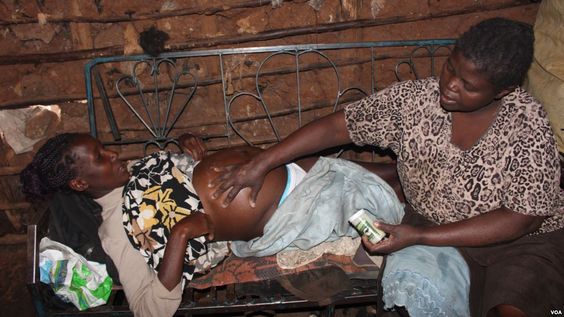By Brenda C. Ninsiima
Access to healthcare is a fundamental human right, yet in many rural areas, particularly in developing countries like Uganda, this right remains unrealized. In such regions, traditional birth attendants (TBAs) often emerge as the primary caregivers for pregnant women, especially where formal healthcare facilities are sparse or entirely absent. While the prevailing narrative in healthcare advocacy often emphasizes hospital births as the optimal choice for maternal health, this perspective can overlook the practical realities and cultural contexts of rural communities.
Uganda, a country marked by significant rural populations, faces considerable healthcare disparities. According to the 2020 Uganda Demographic and Health Survey, only 57% of births in rural areas are attended by skilled health personnel, compared to 81% in urban settings. This disparity is a direct consequence of inadequate infrastructure, lack of transportation, and a shortage of qualified healthcare professionals in remote areas. In many cases, the closest health facility may be several kilometers away, making it difficult for women to seek emergency care during childbirth. In such scenarios, TBAs become not just a choice but often the only viable option.
TBAs, often community members trained in basic obstetric skills, play a crucial role in supporting maternal health. Their training may include knowledge of hygiene practices, identification of complications, and basic newborn care. In rural Uganda, TBAs are familiar figures within their communities, often having attended multiple births and possessing an intimate understanding of local customs and practices related to childbirth.
For instance, in the Kabale District of southwestern Uganda, TBAs have been instrumental in reducing maternal mortality rates. A study published in the *African Journal of Midwifery and Women’s Health* highlights how TBAs in this region have effectively bridged the healthcare gap by providing immediate support to women during labor. They are often the first point of contact for expectant mothers, offering emotional support and physical care, and they facilitate referrals to health facilities when complications arise.

The prevailing assumption that hospital births are categorically superior can be misleading, especially in rural contexts. While medical facilities are equipped to handle emergencies and provide advanced care, their inaccessibility can render such advantages moot. For many women in rural Uganda, the journey to a health facility can be fraught with challenges, including poor road conditions, lack of transportation, and financial constraints.
Consider the case of a woman in the rural community of Bukedea, who experienced complications during labor. With the nearest health center over 10 kilometers away, her TBA was able to provide critical support at home, monitoring her condition and preparing for a potential transfer. In the end, when it became clear that a referral to a hospital was necessary, the TBA arranged transportation and accompanied the woman to ensure she received the necessary care. This example underscores that TBAs can serve as lifelines, providing care that is responsive to the immediate needs of women in their communities.
Moreover, TBAs often hold a position of trust within their communities. Their cultural competence enables them to engage effectively with pregnant women, many of whom may be hesitant to seek formal medical care due to past negative experiences, perceived stigma, or fear of unfamiliar medical practices. In regions where traditional beliefs and practices are strong, TBAs can blend medical advice with culturally accepted practices, thereby encouraging more women to seek help when needed.
In the Karamoja region, for instance, TBAs have worked alongside health workers to integrate modern healthcare practices with traditional methods. This collaboration has proven effective in fostering trust and encouraging women to utilize available healthcare services when necessary. Programs that respect and incorporate traditional practices while providing training for TBAs can create a more holistic approach to maternal healthcare.
While the global health narrative often prioritizes hospital births as the gold standard for maternal care, the realities in rural Uganda paint a more complex picture. TBAs are indispensable in providing care and support to women during pregnancy and childbirth, especially where formal healthcare is limited or non-existent. By recognizing the value of TBAs and supporting their integration into the healthcare system, Uganda can take significant strides toward improving maternal health outcomes. Rather than viewing TBAs as a substitute for formal care, it is essential to appreciate their role as vital contributors to the health and wellbeing of women in rural communities. In doing so, we can create a more inclusive healthcare system that acknowledges and addresses the unique challenges faced by women in these underserved areas.


Leave a Reply